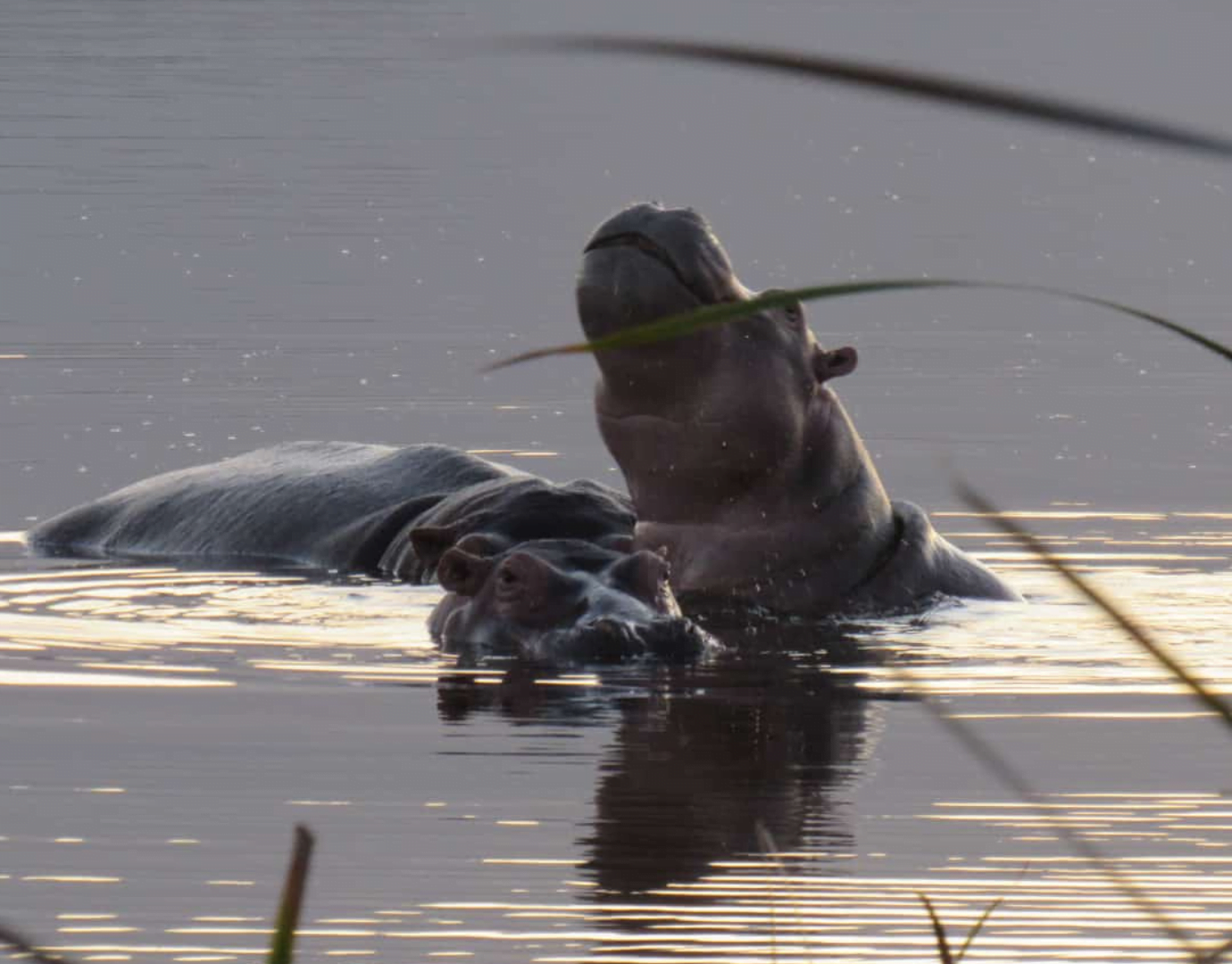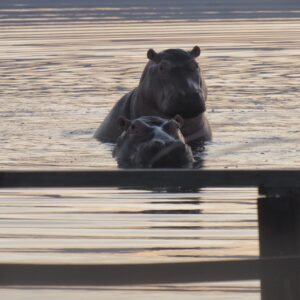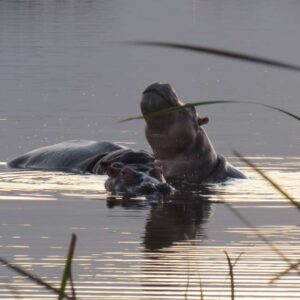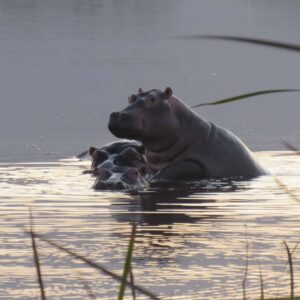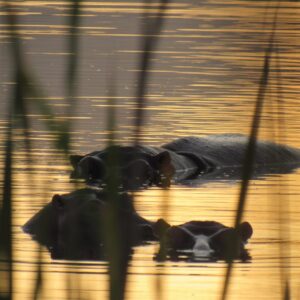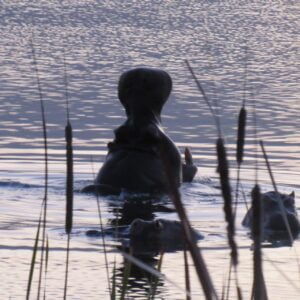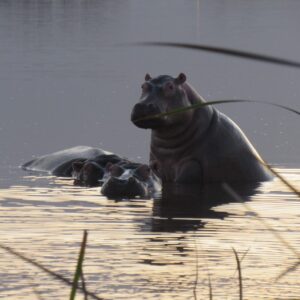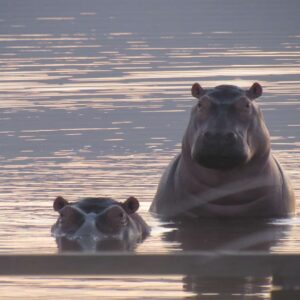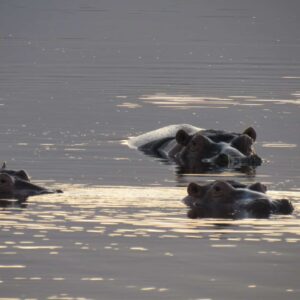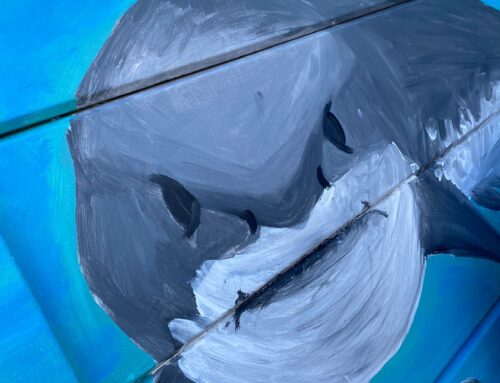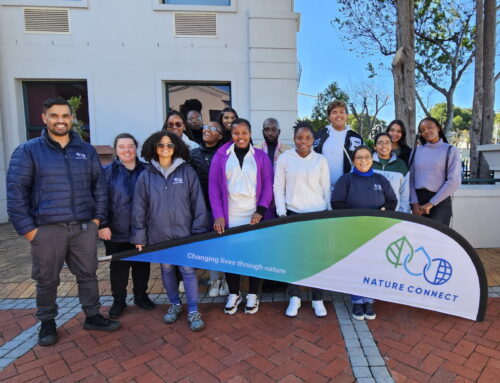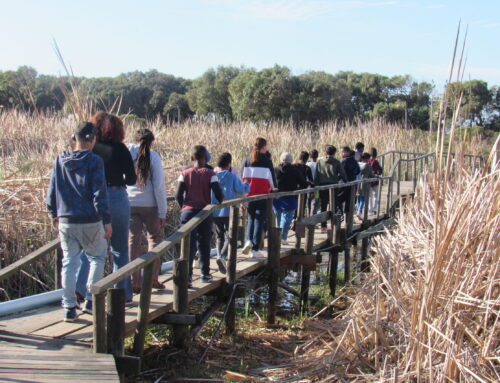On, 15 February, each year, we take the time to acknowledge and admire the Hippo (Hippopotamus amphibious). The Hippo is one of four, mega-herbivores. They are master landscape engineers who, with their presence, can change the structural growth of the vegetation they eat and can alter the nutrient levels of a water body with their excrement.
The population of hippos has been on a decline for many decades due to habitat loss, poaching and drought. Currently, Rondevlei Nature Reserve is home to the only hippos found in Cape Town. A small population of five individuals occupy this space. Should you decide to visit you may see them submerged in the water body with only the tops of their heads emerged.
Fun fact: Hippos are too dense to float or swim; when submerged, they are standing or walking on the floor of the water body.
Hippos provide important ecosystem services, we mentioned changing vegetation structure and changing nutrient levels in water bodies, but they do more than that, they maintain river channels, make alterations to underwater landscapes, compact soil, create habitats for smaller animals and assist with bush encroachment which reduces fuel load for wildfires, amongst other things. With Cape Town being prone to fires during the summer season, we can fully appreciate the importance of a natural fuel load reducer in the veld.
Before you visit any area where hippos are present, here are some important things to remember:
1. Hippos are beautiful to look at from a distance. An angry hippo can be quick and have very little patience with “intruders”. They have one of the most powerful bites in nature, so should you encounter one; creating lots of noise can help deter it. Otherwise you might be left having to find a tall tree to climb up to get out of its way.
2. Listen to your guides, they know the terrain, they know where hippos are likely to be found and they are well educated on the behaviours of hippos and what behaviours you need to exhibit to remain safe.
3. Enjoy yourself! Take many pictures and feel honoured to be in their presence. They are a rare and special sighting.

